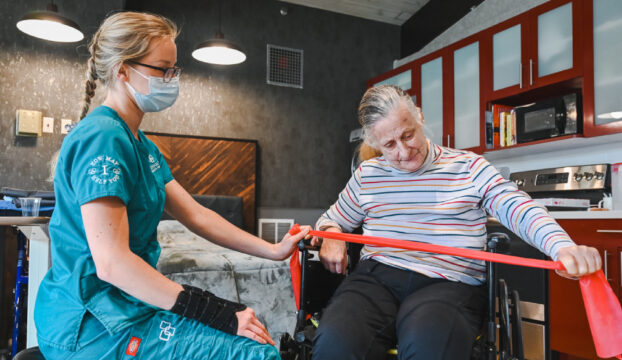The Impact of Athletic Rehabilitation on Speeding up Injury Recovery and Improving Athletic Output
Wiki Article
Athletic rehabilitation plays a vital role in assisting athletes heal from traumas and enhance their overall performance. When athletes get injured, it can be frustrating and discouraging. However, with the right recovery plan, they can come back to their sport more robust and better equipped than previously. Sports rehabilitation focuses on targeted exercises and treatments that address the injured area, aiding to reduce discomfort and regain function. This procedure not only aids in recovery but also boosts sports capability by addressing any weaknesses or discrepancies that may have led to the injury.
One of the essential elements of athletic rehabilitation is the evaluation of the injury. A qualified professional, such as a physical therapist or athletic coach, assesses the sportsperson's status to determine the most effective path of action. This evaluation includes understanding the type of injury, its severity, and how it affects the sportsperson's capability to compete. By collecting this data, the rehabilitation expert can develop a personalized care strategy that includes workouts, flexibility routines, and methods like cold or warmth treatment. This individualized approach ensures that the athlete receives the best treatment for their particular needs.
As sportspeople advance through their recovery, they often participate in different workouts designed to strengthen the injured area. These workouts may include resistance exercises, stretching work, and stability exercises. Fortifying the muscle Get More Information groups around the trauma assists to stabilize the articulation and prevent future injuries. Additionally, enhancing range of motion can improve the scope of movement, allowing sportspeople to execute more effectively in their sport. Stability exercises is also crucial, as it assists sportspeople keep balance and control, which are vital for optimal capability.

Another important element of sports rehabilitation is education. Sportspeople gain knowledge about their traumas, the healing process, and how to prevent subsequent issues. This understanding empowers them to take an active role in their rehabilitation. Comprehending the significance of proper warm-up and recovery practices, as well as the importance of listening to their bodies, can help athletes avoid recurrence of injuries. Furthermore, recovery specialists often provide advice on diet and fluid intake, which are vital for recovery and general sports performance.
In conclusion, athletic recovery is essential for athletes recovering from traumas and working to enhance their performance. Through personalized evaluation and care plans, athletes can recover power, flexibility, and stability. The learning provided during rehabilitation enables athletes to take charge of their rehabilitation and prevent subsequent injuries. By investing effort and energy into sports recovery, sportspeople not only heal but also enhance their abilities, making them more competitive in their individual activities.